Plateau State has declared the current period as a “golden era” of agricultural transformation, unveiling bold achievements that are reshaping food production, livestock development, and rural empowerment under the leadership of Governor Caleb Mutfwang.
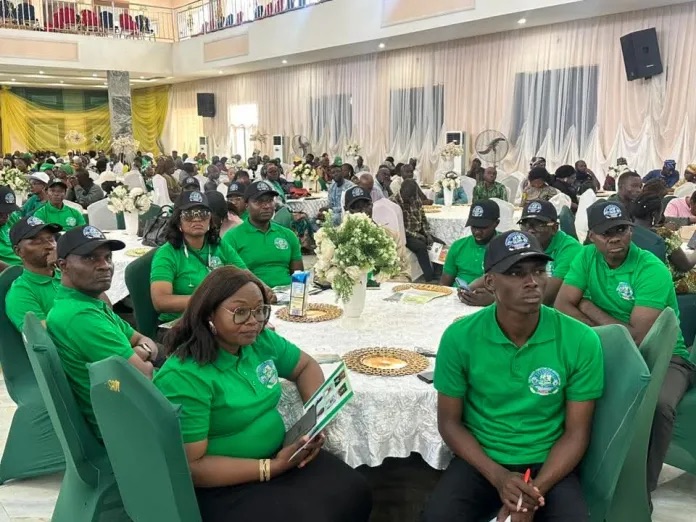
The announcement came during the 2025 World Food Day celebration, themed “Hand in Hand for Better Foods and a Better Future,” held at Crispan Suites and Event Centre, Jos. The event was organized by the Plateau State Ministry of Agriculture and Rural Development in collaboration with the Ministry of Livestock Development, Veterinary Services, and Fisheries.
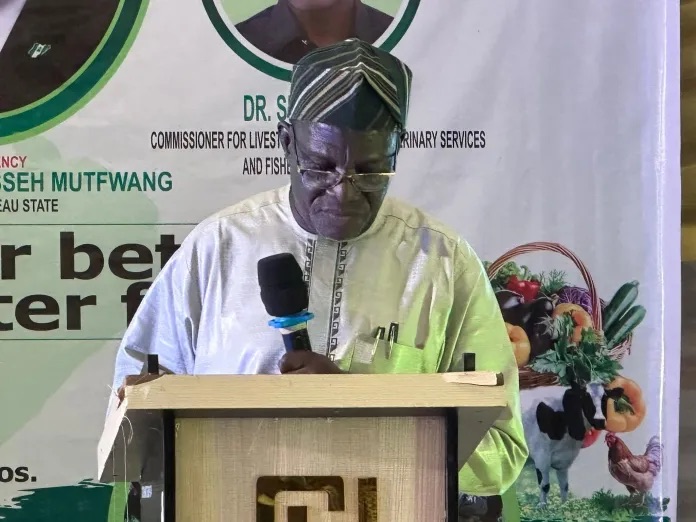
Representing the Governor, Chief of Staff Builder Jeremiah Satmark reaffirmed the administration’s commitment to repositioning agriculture as a major driver of Plateau’s economy. “Agriculture is not a side project — it is the petrol of our economy, the foundation of our food security, and our pathway to prosperity,” Satmark stated. “Governor Mutfwang’s vision is that every Plateau citizen, regardless of profession, should see agriculture as a gateway to wealth and sustainable development.”
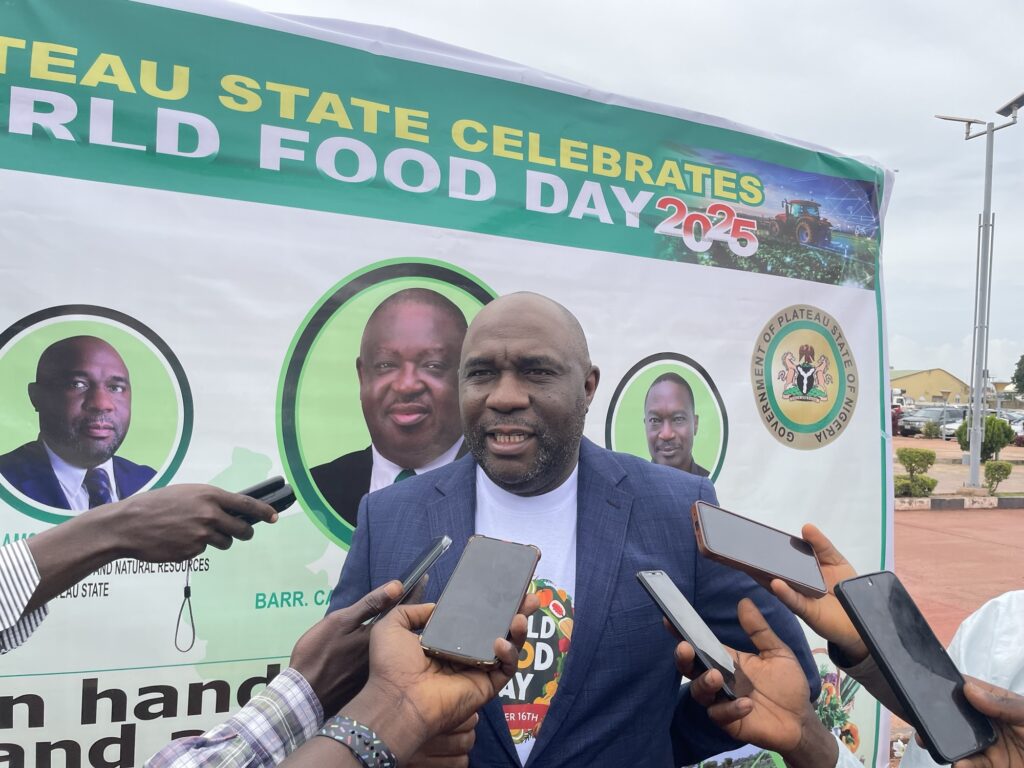
Commissioner for Agriculture and Rural Development, Hon. Samson Ishaku Bugama, highlighted the administration’s sweeping interventions under the “The Time Is Now” agenda, describing it as “a revolution driven by action, not rhetoric.” Over 300,000 farmers have been registered in the new Farmer Data Bank, with a target of two million in the next phase. Through the Input Intervention Programme, the government distributed 18,120 metric tonnes of subsidized fertilizer worth ₦12 billion and 275,486 kg of improved seeds across the 17 local government areas. Youth empowerment remains a key focus, with 340 young farmers trained in modern agricultural practices at CSS Farms, Nasarawa — 20 youths from each LGA.
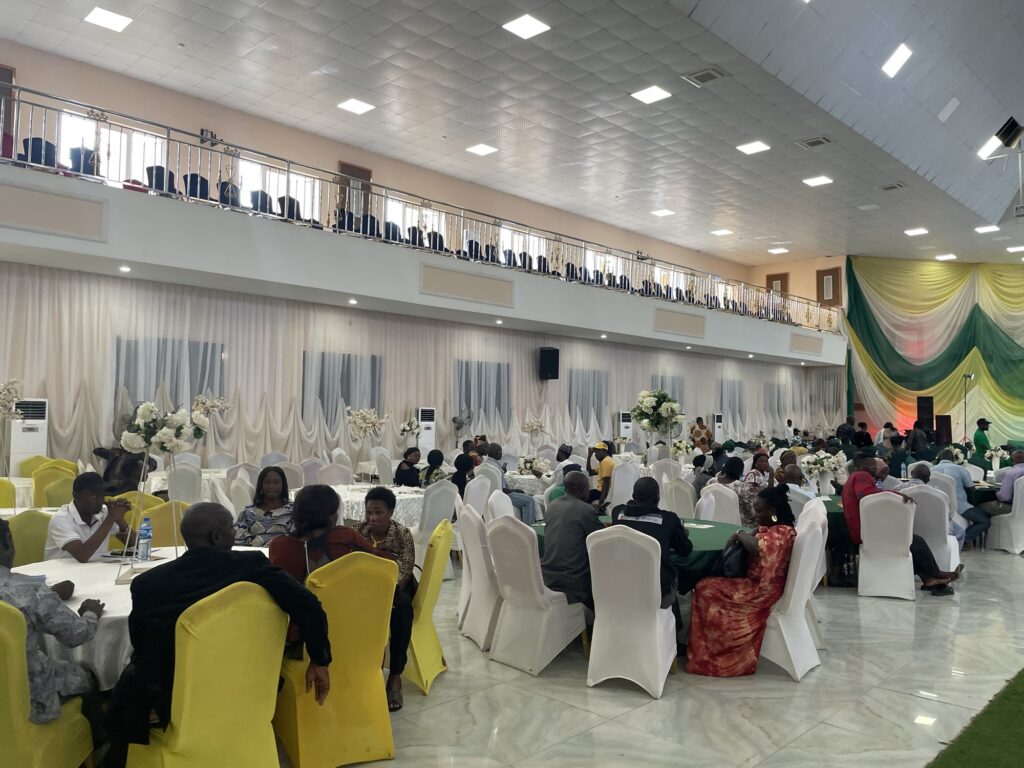
To revive Plateau’s famous potato sector, the state imported 275 tons of certified potato seeds from the Netherlands for multiplication. This aligns with infrastructure development under the Special Agricultural Processing Zones (SAPZ) in partnership with the African Development Bank.
One of the administration’s landmark achievements is the creation of the Ministry of Livestock Development, Veterinary Services, and Fisheries — the first of its kind in Plateau State. Under this initiative, 140,000 cows, 50,000 sheep, and 50,000 goats have been vaccinated against anthrax, while 78 Community Animal Health Workers were trained to strengthen veterinary outreach. The government also repurchased the Panyam Fish Farm, signaling renewed investment in livestock and fisheries. At the Wase Grazing Reserve, ₦185 million was invested in a 30-acre climate-resilient livestock model equipped with irrigation, solar power, and 600,000 Napier grass seedlings.
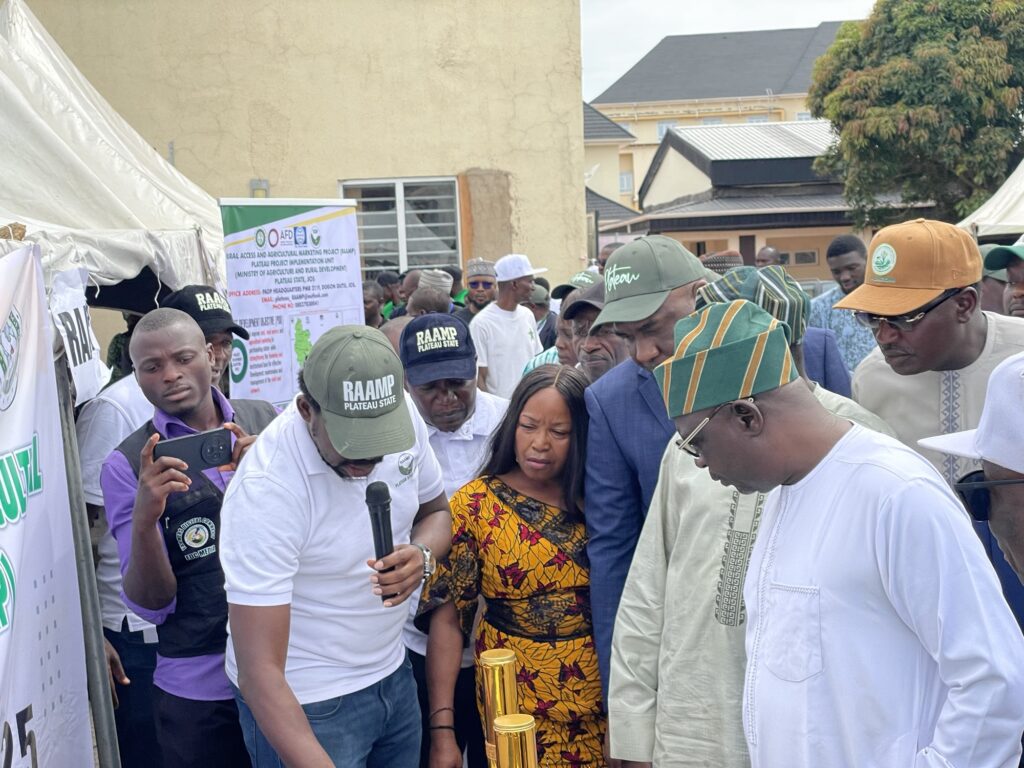
To shield farmers from climate-related risks, the state launched climate-smart weather advisory services and insurance coverage for 27,600 farmers in partnership with Leadway Assurance and PULA Advisors.
Through the Plateau Agricultural Mechanization Services Corporation (PAMSCO), the government procured 10 new tractors and 200 power tillers, cultivating over 2,000 hectares for smallholder farmers and drastically reducing manual labour. The Rural Access and Agricultural Marketing Project (RAAMP) was also reactivated with a ₦3 billion counterpart fund, targeting 331 km of rural roads across Kanke, Mangu, and Quan’pan LGAs. The project has created over 1,800 jobs and improved access to markets.
The Fadama CARES Programme has supported 147,841 beneficiaries, distributed 4.2 million kg of fertilizer, rehabilitated 67 feeder roads, and provided food aid to over 9,000 vulnerable households.
Under the Plateau Agricultural Commodities Company (PLACOM), 12 warehouses have been renovated to stabilize prices and store produce. The state has acquired 5,000 metric tonnes of farm products and plans to establish Plateau Markets in Abuja, Lagos, and Port Harcourt to connect farmers directly with national buyers. The Potato Value Chain Support Project has delivered 118 km of rural roads, nine community markets, 17 spring captures, established a Potato Tissue Culture Lab in Mangu, and rehabilitated three potato processing centers.
In his keynote lecture, Prof. Dauda Bawa of the University of Jos emphasized the urgency of coordinated global action on food systems, warning that over 733 million people worldwide face chronic hunger. He commended Plateau’s efforts as a model of innovation and partnership in tackling food insecurity. A U.S. delegate, Mr. Dawn, representing a renowned livestock genetics organization, announced plans to partner with Nigerian institutions, including the University of Jos, to improve sheep and goat breeding through advanced technologies such as artificial insemination and embryo transfer.
Commissioner for Commerce and Industry, Hon. Mohammed S. Nyalun, emphasized the role of MSMEs in Plateau’s food ecosystem. Over 50 agro-based enterprises have been registered and supported with training on packaging, nutrition, and export standards. He pledged stronger partnerships with financial institutions to improve access to capital for local processors and exporters.
The event concluded with an exhibition of agricultural products, processed foods, and livestock from across Plateau’s 17 LGAs. The atmosphere reflected one clear message: Plateau State is reclaiming its position as Nigeria’s food basket of the Middle Belt.
Commissioner Bugama summed it up: “The achievements we celebrate today are not just statistics — they represent restored livelihoods, renewed hope, and a prosperous Plateau where every farmer counts.”
From smart farming to mechanization, livestock vaccination to youth empowerment, Governor Caleb Mutfwang’s administration is charting a bold new course for agricultural prosperity on the Plateau. Indeed, the time is now.
